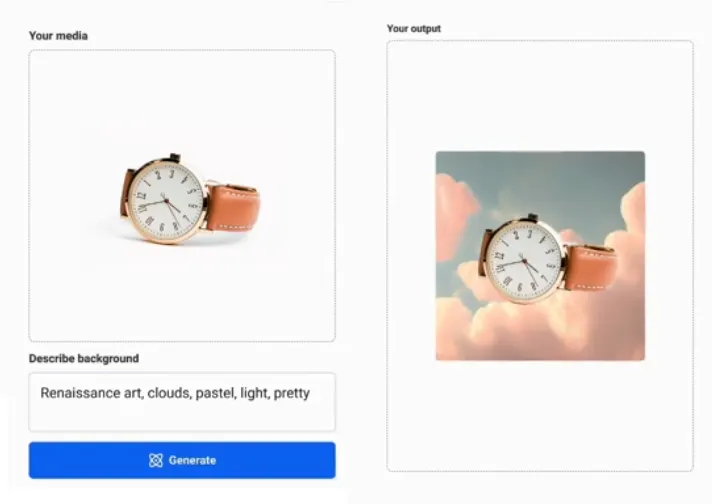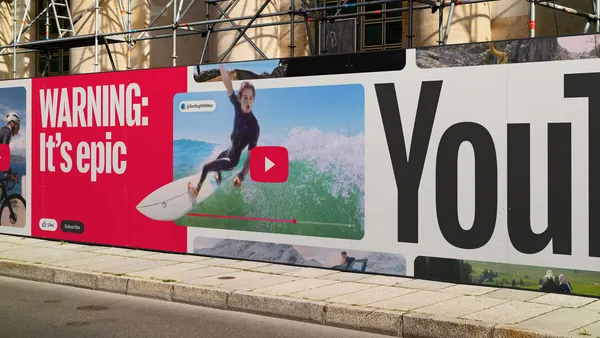“Sociable” is the latest commentary on important social media developments and trends from industry expert Andrew Hutchinson of Social Media Today.
News flash: Meta’s looking to enable fully automated ads by 2026, which will see advertisers activate a campaign by simply inputting their business URL, then letting Meta’s AI creative and targeting systems do the rest.
The Wall Street Journal has shared new insight into Meta’s broader AI automation plans, which are based on the company’s evolving AI systems, and their capacity to produce better results than humans.
As per WSJ:
“Using the ad tools Meta is developing, a brand could present an image of the product it wants to promote along with a budgetary goal, and AI would create the entire ad, including imagery, video and text. The system would then decide which Instagram and Facebook users to target and offer suggestions on budget, people familiar with the matter said.”
WSJ further reports that Meta’s planning to enable advertisers to personalize ads using AI, so that users see different versions of a promotion in real time, based on a range of factors.
Which is probably not the huge revelation that WSJ’s reporting suggests, given that Meta has been relaying this outline to anybody who’ll listen for months now.
Indeed, even as far back as 2023, Meta was outlining its text variation and ad background customization options, powered by AI, which are able to provide ad options based on ad engagement trends.

In October last year, Meta published a guide which showed how its Advantage+ campaigns are delivering better results than human-created campaigns are able, while it’s also been scaling back its detailed targeting options, because its systems now produce better results when less confined by misguided human-defined limitations.
In March, Meta outlined how its various AI-powered ad systems now work in collaboration to deliver better results, then at the beginning of this month, in an interview with Ben Thompson of Stratechery, Meta CEO Mark Zuckerberg explained that:
“We’re going to get to a point where you’re a business, you come to us, you tell us what your objective is, you connect to your bank account, you don’t need any creative, you don’t need any targeting demographic, you don’t need any measurement, except to be able to read the results that we spit out. I think that’s going to be huge, I think it is a redefinition of the category of advertising.”
So it’s not like Meta’s being coy about its plans here, it’s looking to replace the current ad model with a new, fully automated approach, within which its systems, that are trained on successful Meta ads, will be better suited and able to create effective promotions on your business’ behalf.
The only real update to this covered in this latest insight is that Meta has now set a date target for this, which won’t necessarily be the cut off date for humans to be able to create ads, but will be the time that Meta’s aiming for when it has all of these systems fully enabled and ready for use.
Is that a good thing?
Well, maybe not for the millions of people who work in advertising, though as with all AI tools, they will still require human oversight to deliver the best results.
And logically, a system that’s able to assess billions of ads for performance cues, then optimize based on that, is going to be better than humans in creating relevant promotions.
That doesn’t mean that marketing will be done for as a whole, but it does mean that advertisers will need to re-adjust their focus, and learn about the latest AI tools, and what they can do, if they want to maximize their utility.
Because while these systems will be able to produce ads with limited (if any) human input, understanding how these systems work, and what can further optimize results, will still be valuable, and managing different kinds of AI-produced and generated ads, combined with broader creative vision, will remain an important overall branding focus.
So while this sounds like the end of advertising as we know it, really, it’s more of an opportunity for human-centered branding to play a role in the broader shaping of public perception and interest.
Machines can create effective ads, yes, but they have no creative sensibilities, which is where real human input will remain critical.














